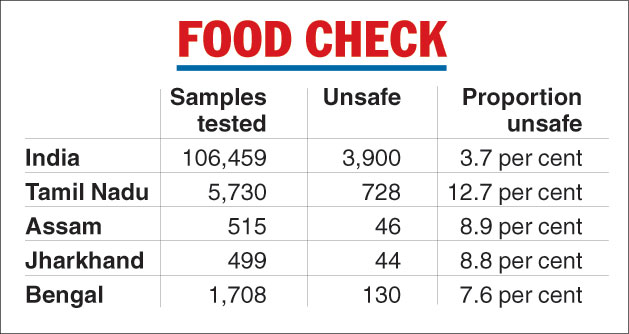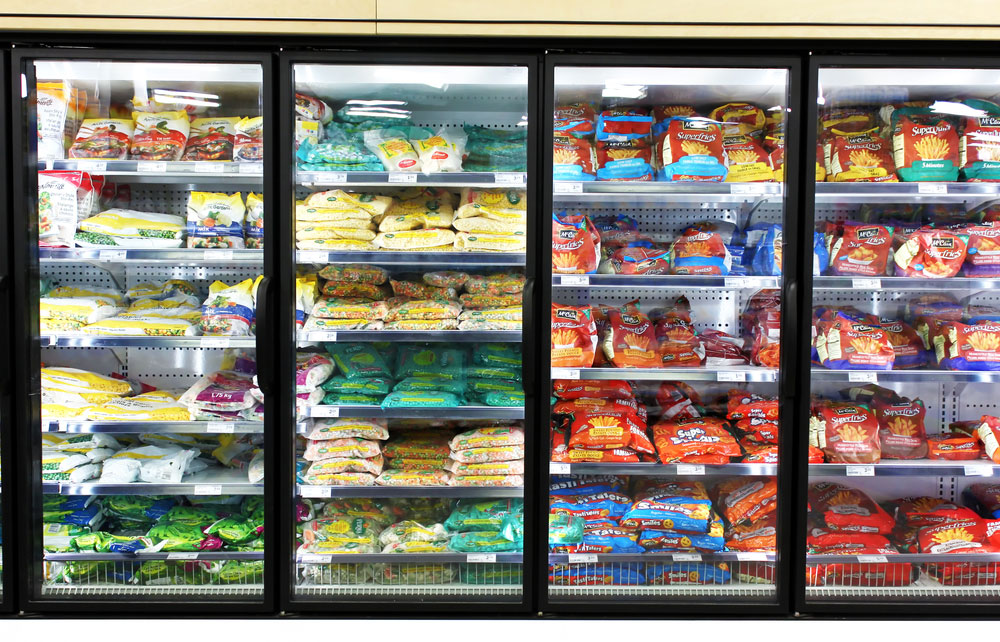Bengal is one of four states where the proportions of food samples that tested unsafe last year were twice the national average of 3.7 per cent or even higher, India’s food authority said in datasets released on Monday.
The Food Safety and Standards Authority of India said 3,900 (3.7 per cent) of the 106,459 samples of processed and packaged food tested during routine inspections across the country during 2018-19 were found not to conform to safety standards. (See chart)
Tamil Nadu had the highest proportion of unsafe samples at 12.7 per cent, while the figures for Assam, Jharkhand and Bengal were 8.9 per cent, 8.8 per cent and 7.6 per cent, respectively.
The datasets rely on information received by the FSSAI from authorities across the country that routinely and randomly sample packaged and processed foods, from milk and meat to bread, biscuits, frozen food and ready-to-eat snacks.

The FSSAI said the poorly performing states had not been able to put in place full-time officers for food safety and lacked proper food-testing laboratories despite the food safety law having been in force for more than a decade.
“More rigorous enforcement by (the) states is essential to build public trust in food,” Pawan Agarwal, the FSSAI’s chief executive officer, said in a statement.
“Enforcement efforts need to be better targeted and preceded by surveillance to identify hotspots and problem areas.”
In Uttar Pradesh, 6.2 per cent (1,404 out of 22,583) of the food samples tested were found unsafe.
The FSSAI has for the first time segregated the datasets to separately show the proportions of food samples that were unsafe, substandard or mislabelled.
Among the 106,459 samples tested nationwide, 9,645 (9 per cent) failed to conform to the labelling guidelines or were mislabelled, while 16,870 (15.8 per cent) were found substandard.
The proportion of food samples found not to conform to at least one of the three sets of standards rose from 24.4 per cent (24,262 of 99,353) in 2017-18 to 28.6 per cent (30,415 of 106,459) in 2018-19.
The number of convictions nationwide for violations of food safety or quality standards has increased from 1,605 during 2016-17 to 5,198 during 2017-18, according to the FSSAI. But many of these convictions have resulted from cases filed in earlier years.










